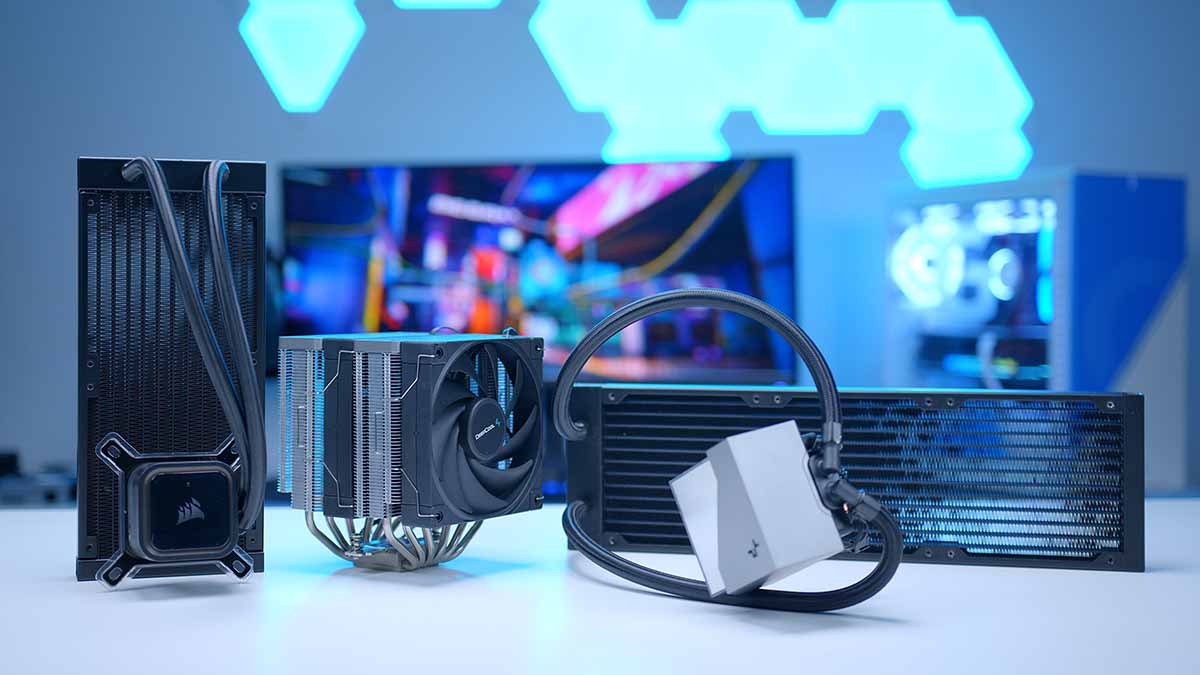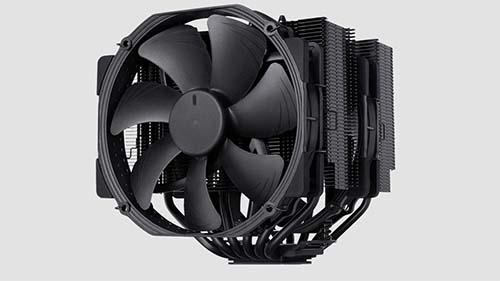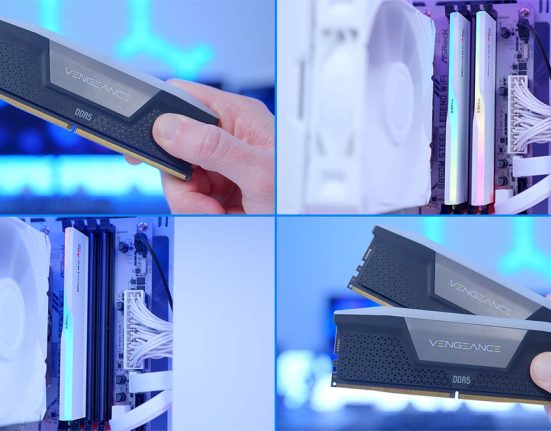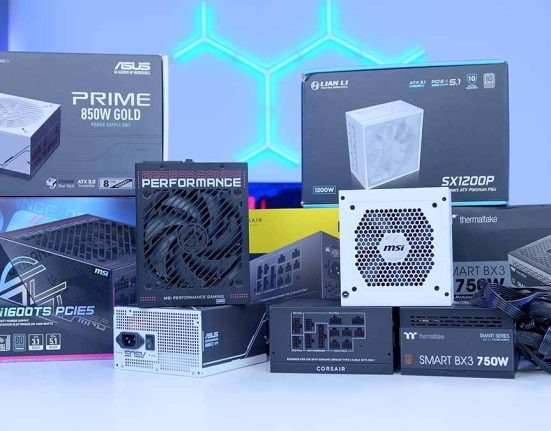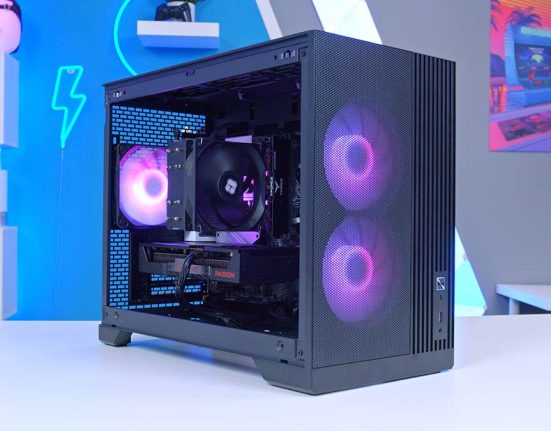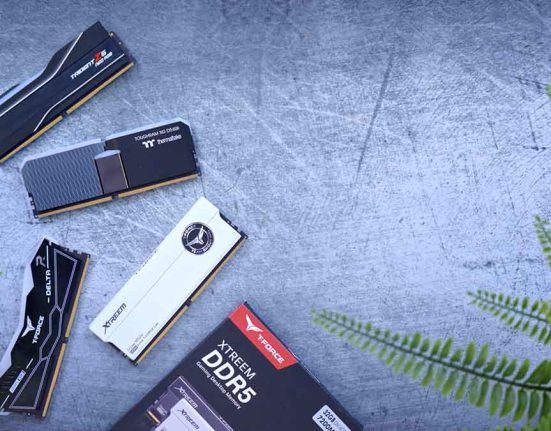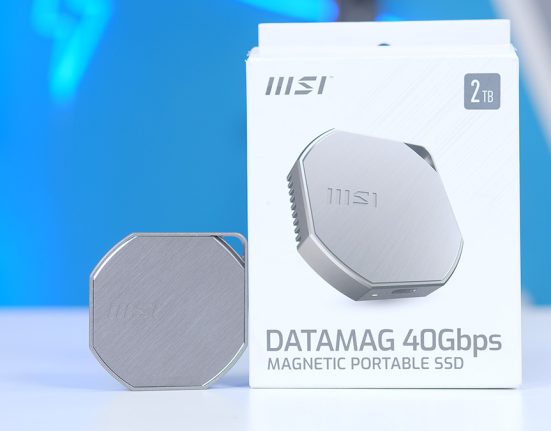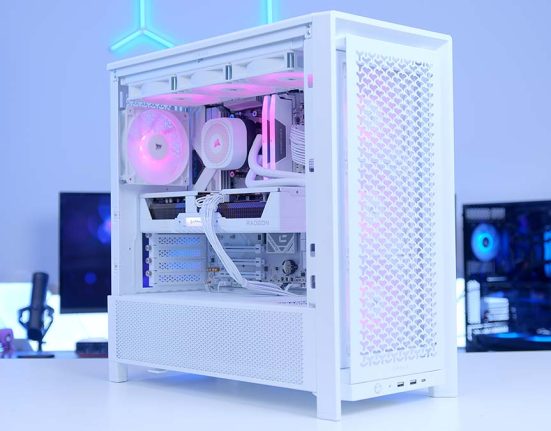Introduction
The AMD Ryzen 7 7800X3D is part of the Ryzen 7000 line-up, and so far this CPU has been a hit. Titled as the ‘most powerful gaming CPU’, the 7800X3D is a worthwhile consideration for those looking to build a 4K gaming system that will last for the next five to ten years. With this mind, some questions are raised concerning the thermals of AMD’s most recent addition.
Ryzen 7000 CPUs are able to output pretty high thermals under all-core loads, does this mean the Ryzen 7800X3D is going to share a similar story? Or can consumers breathe a little bit, knowing they won’t have to spend a fortune on the latest and greatest CPU cooler? In this article we’ll be answering these very questions with a roundup of the best coolers to pair up with the 7800X3D. We’ll be breaking down whether you’ll need an air or liquid cooler, what the Ryzen 3D SKUs are, with some recommendations towards the end!
Suggested Article: Best Motherboards to Buy for the Ryzen 7 7800X3D
Our Recommendations
1. Deepcool AK620

Deepcool‘s AK620 is the first CPU cooler featuring in this roundup, and is one of the best budget options on the market. The dual-tower design sporting a dense array of heatsink fins can quickly disperse heat, which is then pushed away from the cooler and then our of your case with the two 120mm fans strapped on the tower. Ultimately, this CPU cooler won’t be able to handle all-core loads on the 7800X3D, as it just isn’t efficient enough.
However, if you’re looking for a quick, cheap, and easy option, the AK620 will be perfectly fine as a cooler for a gaming-based CPU. In my personal experience this is one of the best CPU coolers on the market right now, and definitely a winner for price conscious consumers.
The Deepcool AK620 is super easy to install, even though the AMD mounting does require a little bit of additional fiddling due to the socket, but the AK620 overall is very simple to install providing a solid foundation with a few screws and brackets, whilst applying even pressure over the whole CPU. The AK620 is one of the few CPU coolers on the market right now sitting beneath the $100 mark that can remotely hold up to some of the top-end liquid options. This cooler is definitely worth a consideration for those on a budget.
Deepcool‘s AK620 is one of the more plain options when it comes to design. Although it will blend in relatively well overall, the cheaper aesthetic won’t appeal to everyone. Although the AK620 is solid as a gaming CPU, all-core multithreaded loads will pose a bit of an issue for this CPU. We’d recommend looking at other options if you plan on building a 7800X3D workstation PC.


2. MSI MAG CoreLiquid 240R V2

Next is the MSI MAG CoreLiquid 240R V2. This is a cooler that we’ve recommended before, and featured in a number of builds, because it is one of the best CPU cooler for mid-range systems that need just that little bit extra in terms of performance. The CoreLiquid 240R is perfect for those looking to build a long-lasting system. The pump of the CoreLiquid has been moved to the radiator, increasing the overall longevity. Liquid coolers are able to disperse heat much more efficiently due to the nature of their design, which makes the CoreLiquid perfect for more intensive workloads that demands heat to be moved away much faster.
The CPU block also has a neat feature, in which the blockhead can be rotated, allowing you to change the orientation of the MSI logo and RGB to always be the right-side-up, regardless of mounting.
The overall noise rating of this cooler could be better, but you’ll only start to notice the fans and pump when your system is under more intensive loads. The biggest win for this cooler (much like the AK620) is the price point, coming in at under $100 the pricing is difficult to argue with. This cooler is another winner for the more price conscious buyer.
The CoreLiquid 240R is great for high intensity workloads, but it does suffer to a degree when it comes to noise levels. Consumers can expect slightly louder fan and pump noise when the cooler is under a bit more stress compared to gaming. Overall we’re pretty happy with the pricing of the 240R V2, but if you’re on a tighter budget, this CPU cooler won’t be a great option. There are a multitude of cheaper air coolers that will be perfectly fine to pair up with the 7800X3D for a lower price point.


3. Noctua NH-D15 Chromax Black

Noctua‘s NH-D15 is a fan favourite of ours at the GeekaWhat office and has consistently stood the test of time as one of the best CPU air coolers on the market. While coming in at a somewhat higher price point comparative to other options, this is well warranted due to the performance metrics. The NH-D15 has constantly been updated to match all of the socket changes, which goes to show how popular this cooler is in the PC gaming space.
The NH-D15 can handle pretty much anything you throw at it. This air CPU-cooler can easily handle 4K gaming, and workstation applications shouldn’t pose much of a problem either. There are limitations when you throw in overclocking, but for the most part, this cooler will be able to withstand the performance the the AMD Ryzen 7 7800X3D has to offer.
This cooler is incredibly easy to install, looks super sleek, and is extremely silent too. This tower cooler will be the go-to option for many consumers looking to pick up a solid air cooling option for enthusiast level builds.
One of the drawbacks from the Noctua NH-D15 is that the cooler is very popular and fluctuates a fair amount when it comes to prices. Consumers can expect to spend over $100 most of the time for this air cooler. Additinally, the 7800X3D isn’t an overclockable option, if you plan on upgrading to a CPU with overclocking capability later down the line, you might want to pick a liquid cooled option.
4. Corsair iCUE H100i Elite Capellix XT

Our next item of the roundup is the Corsair iCUE H100i Elite Capellix XT. The benefit of picking up a Corsair liquid cooler is that they strike a fine balance between performance and aesthetic. The Elite Capellix XT model has an awesome and vibrant set of RGB lights on the CPU blockhead, along with the radiator fans themselves, allowing consumers to light up their PC light a Christmas tree.
The Corsair AF RGB Elite fans are some of the strongest options on the market, whilst minimising noise levels. All of the lighting and RGB can of course be customised and configured within Corsair’s industry leading iCUE software, allowing you to get noise levels to your desired preference, or changing any lighting options or colours to fit the theme of your PC build.
This CPU cooler is one of the best looking and best performing options on the market with a 240mm radiator. As you can probably imagine, this CPU cooler is a rather pricey option compared to the rest of the market, and you’d be correct.
The inclusion of high performance fans, plenty of RGB, and the iCUE Commander drives up the price beyond $100, which won’t be ideal for price conscious buyers. It’s also worth noting that although iCUE is a solid piece of software, it doesn’t handle other RGB and fan controlling applications very well. We’d recommend avoiding installing multiple RGB and fan software as this can cause crashing!


5. Deepcool LT720

For our final cooler of this roundup, we’ve picked out Deepcool‘s LT720 which is a 360mm design, sporting a unique CPU blockhead. This particular model features Deepcool’s latest pump technology which ensures optimal coolant flow, with a pump that can run up to 3100RPM, dispersing heat as quickly as possible. This does increase noise levels to a degree, but this will ensure that heated coolant moves away from CPU at high efficiency levels.
In terms of fans, the three FK120 fans are rated to reach 2250RPM, with a maximum noise rating of 32.9 decibels, which should be relatively quiet even under more intense loads. Design wise, the radiator and fans themselves feature an all-black design, whilst the CPU blockhead offers an RGB infinity mirror design which looks vibrant and gorgeous.
The lighting can also be controlled within a number of different RGB software, including MSI’s Mystic Light, ASUS AuraSync, and Gigabyte’s RGB Fusion. 360mm coolers tend to come in at quite a premium due to the size and manufacturing costs of larger radiators. However, Deepcool‘s LT720 can be secured for well under the $200 mark, making it a rather cost effective option.
Although we’re starting to see many mid-tower cases offer space for 360mm radiators, we’re still waiting to see more options enter the market. Due to the size of the LT720, you may have to spend a little bit more on a case to ensure you’ve got enough clearance to install it.
Purely from an aesthetic point of view, if I’m spending over $100 on a cooler, I expect there to be some alternative RGB options when it comes to fans. The LT720 would be a much better option if Deepcool provided an alternative RGB model for a little bit more money.


Air vs Liquid Cooling – Which is Better?
If we’re talking about budget, an air cooler is the clear choice, as these coolers are inherently cheaper contrasting to liquid cooled options. However, if you don’t choose a liquid cooler, you do miss out on efficiency and often lower noise levels. No system is made equal, so your use-case will generally be the biggest factor that determines which cooler your choose. We’d recommend for gaming that the majority of consumers pick up an air cooler, as this is the most cost effective option. If you’re planning on running all-core loads all the time, you’ll want a liquid option to reduce temperatures as much as possible. Anything in between is mostly preferential!
How We Picked the Best CPU Coolers for the Ryzen 7 7800X3D
For CPU coolers there are a few main considerations that consumers should take into account before choosing a cooler. These are: thermal capability (i.e. whether it cools down your CPU), motherboard compatibility, aesthetic, and price. After taking a look at these factors, we provide a generalised overview of how these may or may not affect your desktop machine. For a more in-depth look at our testing and evaluation methods, take a look at some reviews and buyers guides that we’ve provided below:
Frequently Asked Questions
Can I Use My Old AM4 Cooler with the 7800X3D?
In short, yes! AM4 coolers use the exact same mounting mechanism for the AM5 sockets. We would recommend taking this with a pinch of salt, but all AM4 coolers are theoretically supported on the AM5 socket.
Is the 7800X3D a Good Workstation CPU?
Yes and no. The 7800X3D will be able to handle some intense productivity workloads, but there are better options with more cores that will be better suited to this task, as the 3D V-Cache doesn’t benefit most workstation applications.
Is Clearance Something I Should Be Worried About?
You should always consider clearance when picking up a CPU cooler. Radiators automatically require more clearance due to their size, but if you’ve picked up a large GPU, an air cooler can also pose some issues during installation.


